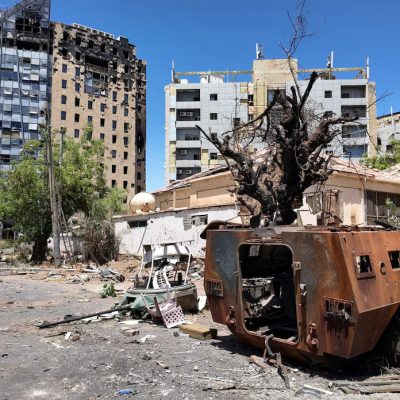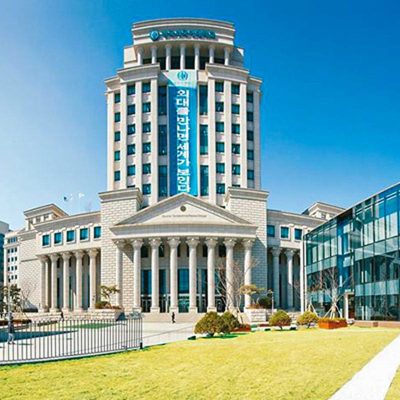Several international news agencies declared few hours ago that two civilian oil tankers were hit in a suspected attack in the Gulf of Oman early on Thursday, causing oil prices to surge and raising the already heightened tensions in the Middle East.
The tankers were struck in the same area where the US accused Iran of using naval mines to sabotage four other oil ships in an attack last month.
One of the tankers is carrying “Japan-related” cargo, and Iran’s Supreme Leader Ayatollah Ali Khameneni is meeting with Japanese Prime Minister Shinzo Abe in Tehran.
One of the ships, the Norwegian-owned Front Altair, was “suspected of being hit by a torpedo”, according to Taiwan’s state-owned petrol company. The ship was on fire, its owners said.
The second tanker, Kokuka Courageous, was damaged in a “suspected attack” that breached the hull above the water line while on passage from Saudi Arabia to Singapore, according to Bernhard Schulte Ship management.
First of all, we have to recall several incidents occurred with last few weeks related to the US-Iranian crisis as next:
- Escalation of the military situation between the US and Iran early May and start deploying US navy, air and air defense forces to the Gulf. This deployment was a response to the Iranian aggressive statements threatening the Straits of Hormuz, and maritime lines destined for the passage of 30% of the energy sources to all over the world.
- Sabotage operations against four civilian oil tankers in the Gulf of Oman near Emirates coasts during second week of May .
- Houthis unmanned vehicles strikes hitting Saudi oil tanks, just two days later.
- On May 19, Saudi Arabia declared inviting more US forces to be deployed to the Gulf region (decided later to deploy 1500 US soldiers to the Gulf region); it also declared calling for exceptional Gulf Cooperation Council (GCC) and Arab League (AL) summits to be held in Mecca with the periodical Islamic conference summit, all were held on 30th and 31st of May. The three summits were to counter the Iranian threats, as declared by Saudi Arabia. Situation of the US-Iran crisis was at its peak of escalation.
- Trump visit to Tokyo the period 25 – 28 Nay, giving the opportunity to Japan to start an attempt of mediation between the Washington and Tehran. Positive official statements and tweets by Trump calmed down the situation to its lowest level. Accordingly, Japan’s Prime Minister visit to Tehran was decided to paid the period 1 – 14 June (currently on).
- By end of May, the three Summits in Micca declared a unified position against Iran except Iraq and Qatar. Seems to some analysts like insisting on re-escalating the crisis.
- Israel keeps silent, or pretending so.
- By end of May, the three Summits in Micca declared a unified position against Iran except Iraq and Qatar. it seemed to some analysts that there is an insisting on re-escalating the crisis.
- Israel keeps silent, or pretending so, in the time it’s perhaps playing very carefully under the table.
The current repeated question, who stroke the Japanese and the Norwegian civilian oil tankers today, and why?
I think that the expected success of mediation being adopted by Japan’s Prime between Washington and Tehran during his current visit to Iran is not desired by some parties; however, possible scenarios could be behind this recent operation:
First: The first Gulf War began because of provocations by some elements of the Iranian army loyal to the Islamic revolution, and on orders directly from the leader of the revolution, surpassing the leadership of the Iranian armed forces. Over the years, Iran has established several armed systems and militias in which they can compete the regular armed forces and the Iranian security services in their jurisdiction. These systems move much more freely than the official bodies, and it possible that one of the sub-elements of these militias is involved in this operation.
Second: By armed groups (terrorists) funded by one of the parties that seek to carry out a strong military strike against Iran, such as Israel or any other beneficiary.
Third: By terrorist groups aiming the outbreak of a major war in the region to prepare the conditions for the resumption of its activities.
All of the three expectations are preliminary and according to the information available by news agencies and official sources.
Sayed Ghoneim, Major General (retired)
Fellow, Nasser Higher Military Academy
Chairman, IGSDA
www.igsda.org





